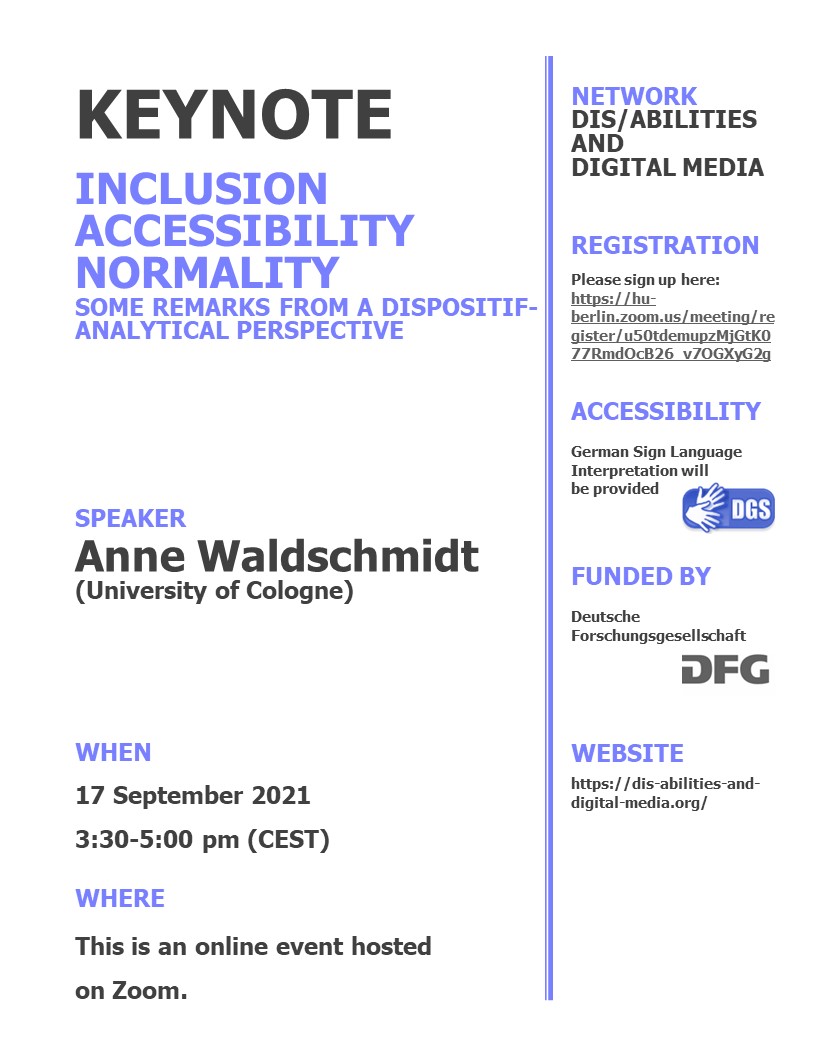
Abstract
It is Critical Disability Studies as an innovative discourse, which has significantly contributed to revising simplistic and individualistic views of disability and impairment. Introduced in the 1970s, the social model of disability has since fundamentally changed the international disability discourse. This approach, as Disability Studies scholars and disability rights activists know well, implies the assumption that disabled persons are a minority group discriminated against and excluded from mainstream society by a variety of barriers, prejudices and demeaning attitudes. Proponents of the social model of disability usually argue for an inclusive, fair and equal society as solution for this ‘disability problem’; this vision implies that once accessibility is granted full inclusion becomes possible, and disabled people will enjoy full participation on an equal basis with others. From the view point of social theory, this picture sounds too good to be true. Drawing on Michel Foucault and his notion of ‘dispositif’, and considering, in addition, the works of Erving Goffman and Pierre Bourdieu, my presentation argues instead that both inclusion and accessibility and normality should be understood as complex, dynamic and contingent arrangements, in which ‘disability’ and, at the same time, ‘ability’ are constantly negotiated, constructed and re-produced. What is needed is an integrated perspective that understands, for example, accessibility as a multidimensional ensemble, that is to say, on the one hand as a discursive, institutionalized and materialized structure, on the other hand as a performative practice that is repetitive and creative at the same time, and last but not least as a subjective experience and identity construction.
Speaker
Anne Waldschmidt, Dr. rer. pol., is Professor of Sociology and Politics of Rehabilitation, Disability Studies, and Director of the International research unit Disability Studies (iDiS) at the Faculty of Human Sciences of the University of Cologne, Germany. Recent publications include Why critical disability studies needs a cultural model of dis/ability (2018) and Culture – Theory – Disability. Encounters between Disability Studies and Cultural Studies (2017, ed. with Berressem, Hanjo and Ingwersen, Moritz). More Information about iDiS.
Accessibility
German Sign Language Interpretation will be provided during the public talks.
Please let us know about any further accessibility requirements. Email to robert.stock [at] hu-berlin.de by 15 August 2021.
Registration
Please sign up through the Zoom registration page linked below to receive access to the public discussion, maker session and keynotes: https://hu-berlin.zoom.us/meeting/register/u50tdemupzMjGtK077RmdOcB26_v7OGXyG2g.
More Information
